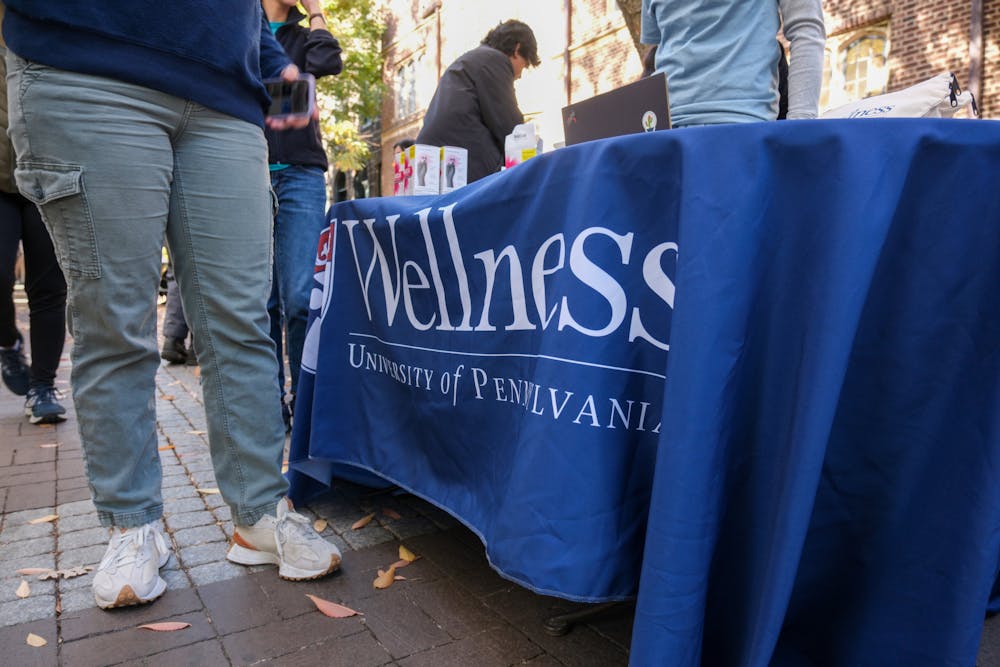
Wellness at Penn held “i care” training for students this past Sunday, teaching exercises focusing on supporting mental health, identifying signs of stress, and crisis intervention.
Initially developed in 2014, “i care” is an interactive training program that equips students, faculty, and staff with the resources and skills to help others deal with stress, distress, and crisis. After passing its ten-year anniversary, “i care” has cumulatively trained more than 7,000 participants.
Wellness at Penn staff psychologist Alaina Spiegel told The Daily Pennsylvanian that the “i care” program is meant to be a “safe space where people can come together and really talk about difficult concerns related to mental health, suicide prevention, and really learn skills … to support people in the real world.”
She added that the program teaches active listening and crisis intervention skills in addition to providing information about counseling services available at Penn.
Director of Integrated Care Initiatives Batsirai Bvunzawabaya said that “i care” has facilitated a “shared structure and a shared understanding for how we talk about various mental health concerns, and how we intervene and respond to them as a campus.”
She added that the program focuses on how the community can “all respond” to crisis as opposed to seeing intervention as done solely by a “centralized feature on campus.”
The “i care” training is split up into two portions — an online section and an in-person training.
“The in-person training is a mix of informational, interactive activities, and then about an hour of role playing,” Spiegel said. “The hour of role plays is actually led by clinicians. … It’s an amazing part of the training, where people can be vulnerable, practice skills that they’ve never done before, then really talk to mental health professionals in these small groups.”
Since its founding ten years ago, “i care” has developed into a resource for the Penn community.
Bvunzawabaya explained that “i care” was initially created as a response to a series of suicides across campus, adding that as the program developed, discussions around mental health changed to ask how “Penn can be a leader in having that conversation, and making sure that students, faculty, staff, parents — everybody is involved.”
“i care” has become a “central community space of hope and of connection,” Spiegel told the DP, adding that over 98% of participants would recommend the training.
A 2018 study assessing “i care” found that the program integrates “elements of emotional processing” through its role plays, with the ultimate goal being to talk “openly and directly about mental health and suicide.”
"We’ve also followed people up to 15 months after the training, and we’ve seen that people improve their knowledge and readiness to intervene in these situations,” Spiegel said.
For Priscilla Chan, a first-year cancer biology graduate student, the “acting and actual role playing” portions in “i care” have helped her to “spot different common mistakes.”
She added that when she first came to Penn, she “found really good support systems and resources on campus,” which made her want to learn “more about how I can provide that support for other students.”
In addition to “i care,” Wellness at Penn has developed complements to the program to further increase awareness and conversation around mental health.
The “i share” video — a collaboration between Wellness at Penn, student leaders, and a grant from the Higher Education Suicide Prevention Coalition — encourages students to open up to others and seek support from each other.
“We need to look out for people. We need to look out for ourselves, and we need to do this as a community together,” Spiegel said.
Wellness at Penn is also looking to launch a new online program on Canvas by the fall of 2025 called “be aware.”
“We want people to be aware of signs of concerns that they might see, both in themselves and in others,” Spiegel said.
Students can join the “i care” mailing list to stay informed about updates regarding the upcoming program, as well as steps to register.
The Daily Pennsylvanian is an independent, student-run newspaper. Please consider making a donation to support the coverage that shapes the University. Your generosity ensures a future of strong journalism at Penn.
Donate










